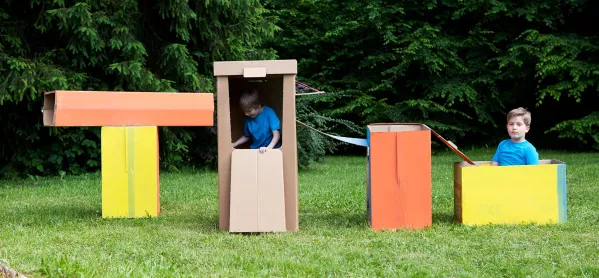All teachers are accustomed to teaching children with a diverse mix of academic ability within their classrooms, but those skills are likely to be tested to the limit in the coming weeks and months.
We know that students’ academic outcomes during lockdown are likely to be related to their individual characteristics and temperament, school engagement and family-related socio-economic resources.
Many children, such as those of key workers, remained in school, and others will have thrived at home, with one study estimating that up to a third of students may potentially make academic gains.
But we know that there was wide variation in the take-up and engagement in interactive lessons, with particular concerns regarding access to resources and differentiation for the needs of individual learners, especially those with special educational needs and disabilities.
And so there is likely to be a widening of the normal academic diversity, with a greater risk of low academic attainment for children of low-income families and children with SEND.
But research has shown that, following any disaster, it is important to restore a sense of safety and normality in order to foster future resilience before rushing to assess our children.
Apparent learning gaps may be transitory rather than long-lasting, and testing and setting targets too soon could result in children being needlessly taken out of lessons from which they might benefit more.
Schools reopening: Differentiation for mixed-ability classes
So what should classes look like at the moment?
Focus on the positives
Early discussion in the classroom could highlight the skills, experiences and knowledge attained during lockdown. A sense of belonging and community needs to be re-established above all else, highlighting shared social experiences rather than academic differences.
Encourage collaborative discussions, allowing children to share common experiences and creating a positive framework within which to structure future learning.
Discussion around these shared experiences can highlight the wider meaning of education and the realisation that time out of school is not all “lost” education.
Get creative
During lockdown, the arts offered diversion and inspiration via digital technology, and pupils may have engaged with or developed their own creative pursuits, which can be expanded upon in class.
Art-based therapies have been shown to increase wellbeing and reduce psychological distress. The use of free, arts-based therapy materials can provide a source of discussion and collaboration for all ages within a differentiated classroom environment.
Be strategic
At times of uncertainty, self-efficacy in teaching supports buoyancy and resilience, which, in turn, reduces negative effects and stress.
Although differentiated teaching of mixed ability is part of normal teacher practice, and teachers are best placed to assess children and plan their curriculum going forward, some teachers are likely to need additional support to ensure their own wellbeing.
The role of effective leadership teams will be key in the next few weeks, not just in setting the school-wide strategic plans, and the settling of pupils back into the school community, but also to provide the support (both material and psychological) that is necessary to maintain the wellbeing of their staff.
Dr Debbie Pope is a lecturer in psychology at the University of Central Lancashire


